1. Zero to One - Peter Thiel
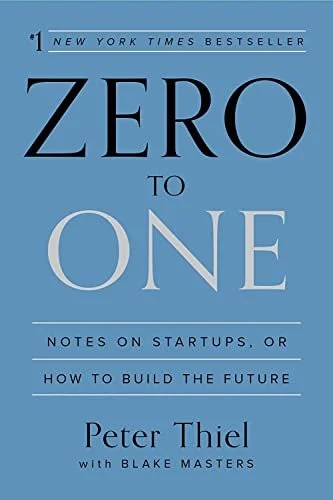
Zero to One, by investor and entrepreneur Peter Thiel, is all about teaching people the importance of thinking for yourself. The next Mark Zuckerberg isn’t going to build a new social media channel. Rather they are going to think outside the box, and instead of building on current ideas, they will develop entirely new way of thinking. Instead of competing in a ruthless marketplace, create and own a new market place.
Rated 4.5 Stars. Buy on Amazon.
2. The Innovator’s Method - Nathan Furr, Jeff Dyer
If you’ve ever had an idea for a new product or service but something stopped you from taking action, the thought of the risk was too off-putting, then this book may be for you.
The Innovator’s Method outlines how to take those next steps. The authors Nathan Furr and Jeff Dyer cover detail a set of tools, that allow agile business development without the costly price tag. Furr and Dyer have developed in this book an complete process, from beginning to end, for creating, refining, and bringing ideas to market.
Rated 4.6 Stars. Buy on Amazon.
3. Founders at Work - Jessica Livingstone
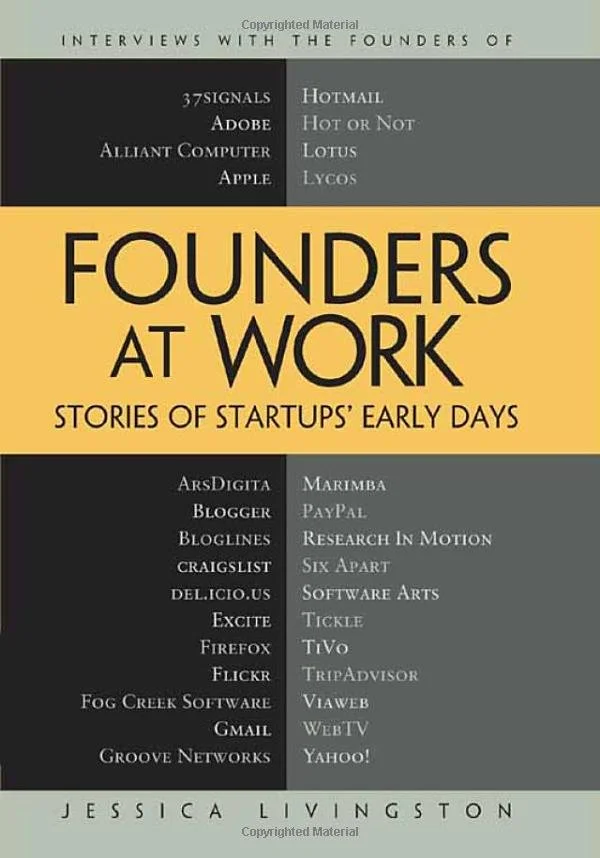
A collection of interviews gathered by Jessica Livingstone with founders from now famous companies. It details there early days, the challenges they faced like every new startup, how they overcame it and got t where they are today.
She asks vital questions like: Where did they get the ideas that made them rich? How did they convince investors to back them? What went wrong, and how did they recover?
Rated 4.4 Stars. Buy on Amazon.
4. Crossing the Chasm - Geoffrey a. Moore
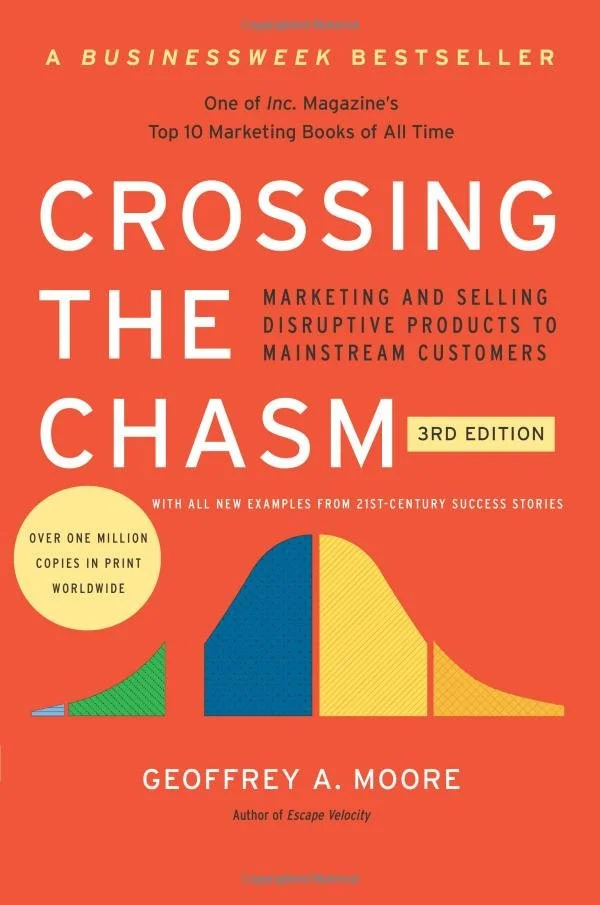
Crossing the Chasm addresses the difference between early adopters of new technology and the early majority. The early adopters are those that are willing to sacrifice for the advantage of being first, though they can’t be sure if the technology will work for them they are willing to take the risk and maybe reap the biggest rewards. The early majority wait until they are sure of the value of the technology. The challenge for innovators, marketers and new business owners is crossing that chasm between being an early majority and taking the chance for the advantage of being part of the early adopters.
Rated 4.6 Stars. Buy on Amazon.
5. Screw it, Let’s Do It - Richard Branson
Iconic businessman, owner of Virgin, shares his personal secrets of success. Outlining invaluable lessons he learnt first hand over the course of his career. He looks at how he got to where he is and where he thinks he will take his career next.
Rated 4.4 Stars. Buy on Amazon.
6. Start Something that Matters - Blake MyCoskie
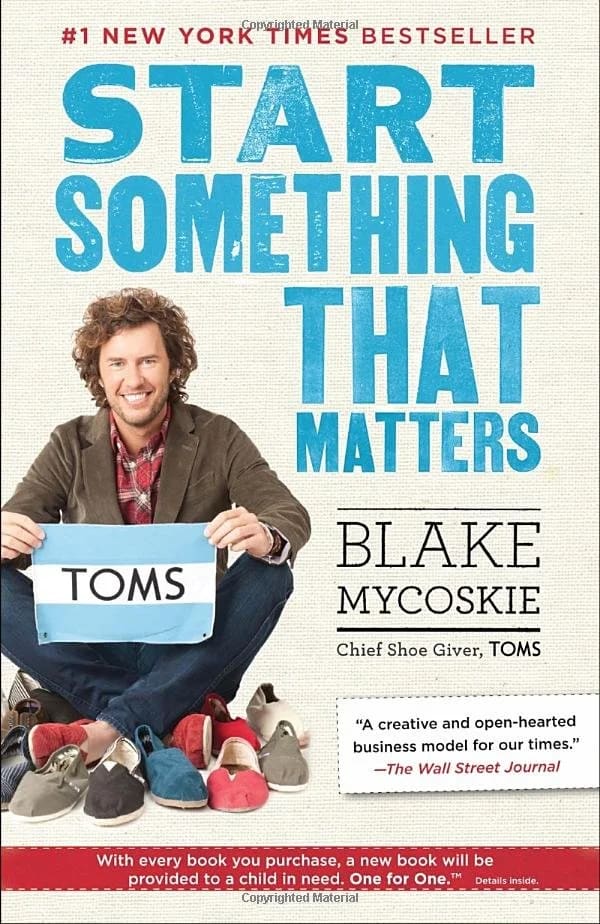
Blake Mycoskie, owner of Toms Shoes, one of the fastest-growing footwear companies, shares the story of how he build a multi-billion company in less than ten years, developing a new business model of success. He explores some of the challenges and the psychological mindset you have to have to create a fast growing successful startup.
Rated 4.6 Stars. Buy on Amazon.
7. Never too late to startup - Rob Kornblum
As the title suggests* Never too late to startup* is about how starting a successful company in mid-life isn’t just possible, but much more likely to succeed.
Rob Kornblum shows this through dozens of interviews with mid-life founders. He explores everything from how to come up with a great idea for your startup, to how to get funding, and even how to balance you work and family life.
He shows how your years of experience in business will be of vital importance to your success.
Rated 4.4 Stars. Buy on Amazon
8. Mastery - Robert Greene
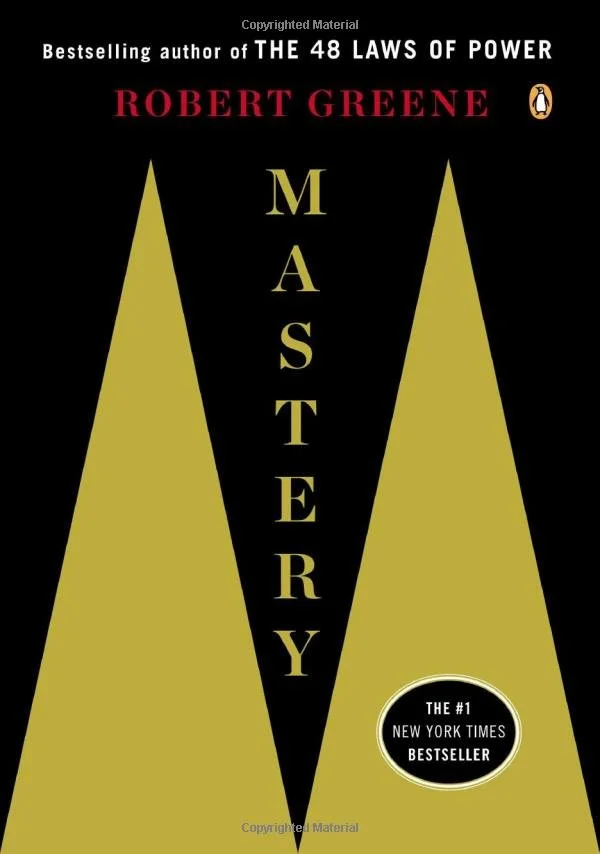
Told in his concise style, Robert Greene builds on his previous work The 48 Laws of Power to provide a developed, practical guide to achieving success with your business. We are all individuals he says, and as such we all of us have a unique view of the world. First we must understand all the rules of the game, and then we must use our uniqueness to change the rules creating original ideas to achieve your potential.
Rated 4.7 Stars. Buy on Amazon.
9. The Power of Habit - Charles Duhigg
The Power of Habit explores how the wrong or right habits can ultimately affect the success or failure of your business. Duhigg looks at great men, from record-breaking Olympic gold medalist Michael Phelps to the CEO of Starbucks exploring the results that their keystone habits have helped them achieve. The right habits can mean the difference between billions and complete failure.
Rated 4.6 Stars. Buy on Amazon.
10. Influence the Psychology of Persuasion - Robert Cialdini
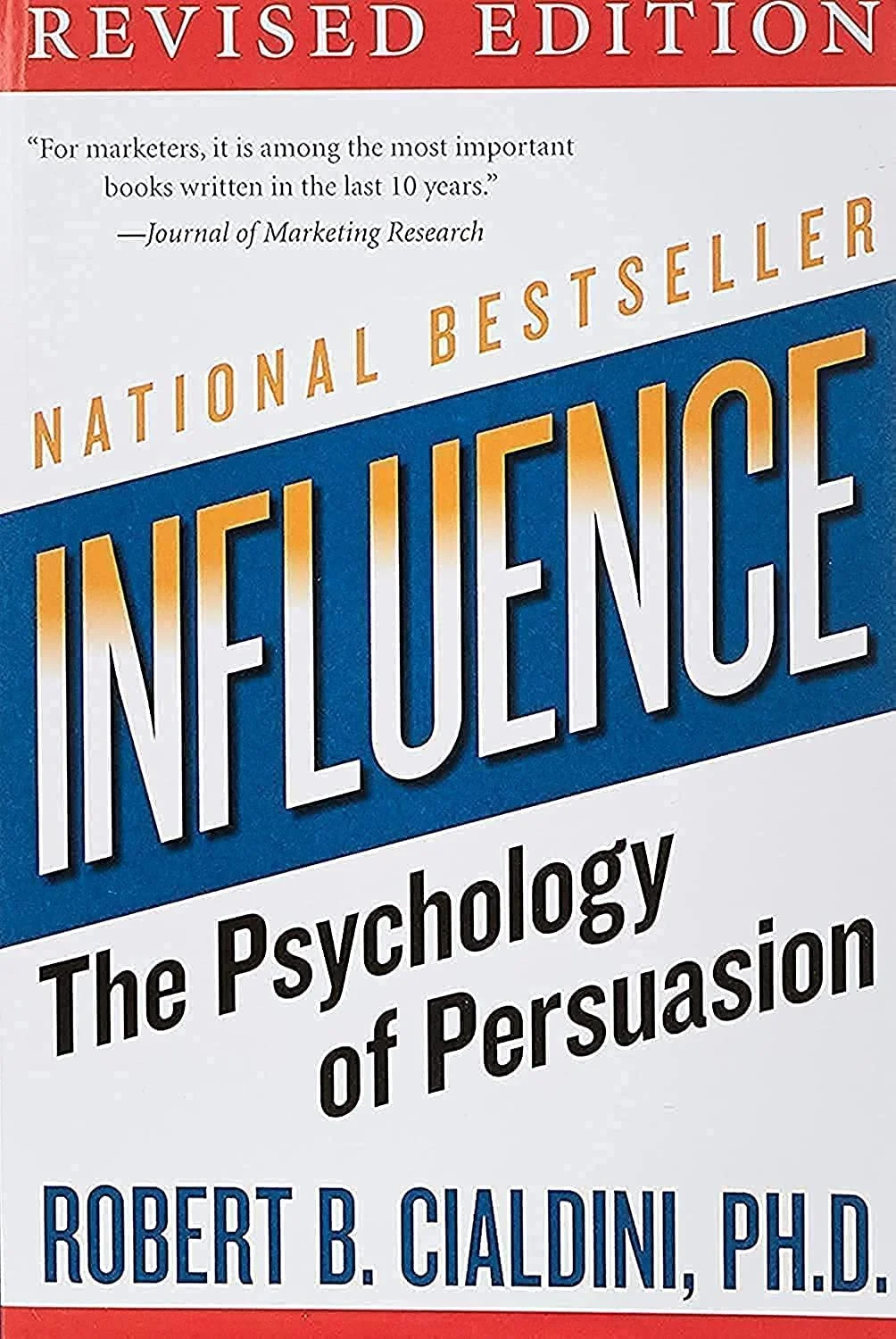
Why do people say yes? Dr. Robert Cialdini is an expert of the psychology behind persuasion and influence. In this book he outlines the six universal principles that he has uncovered in his 35 years of rigorous evidence-based research into just why people make the decisions they do and how they can be influenced. When it comes to creating a successful business, knowing these tricks on influence could make all the difference and completely change how you approach your business.
Rated 4.5 Stars. Buy on Amazon.
11. The First 90 Days - Michael Watkins
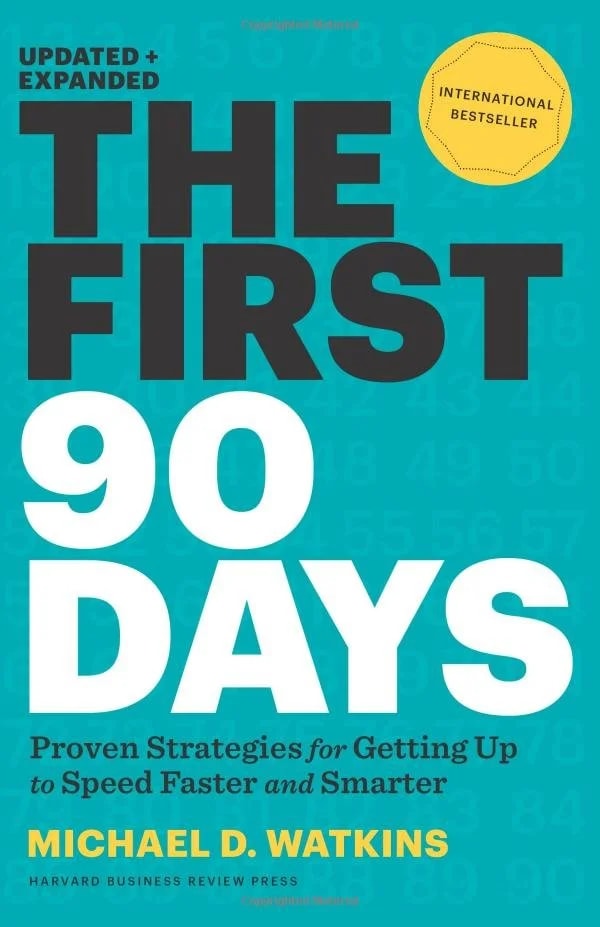
This book is filled with sharp useful advice for anyone moving into a leadership position, whether that’s taking on your own business or just moving up the food chain in your company. Michael Watkins continuously reminds the reader that you don’t just ‘find’ the answer, you have to figure it out, you have to work for it. This book shows you how, and will help the reader get ahead of the game.
Rated 4.5 Stars. Buy on Amazon.
12. Eat that Frog - Brian Tracy
In this book, Brian Tracy gives practical suggestions, based on personal experiences on how to become more productive and efficient. One of the most significant points he makes is to write goals down. The very act of writing your goals down has a strong impact on us, making them more tangible and concrete. The name of the book alludes to completing undesirable tasks quickly and efficiently without procrastinating.
13. Start with Why - Simon Sinek
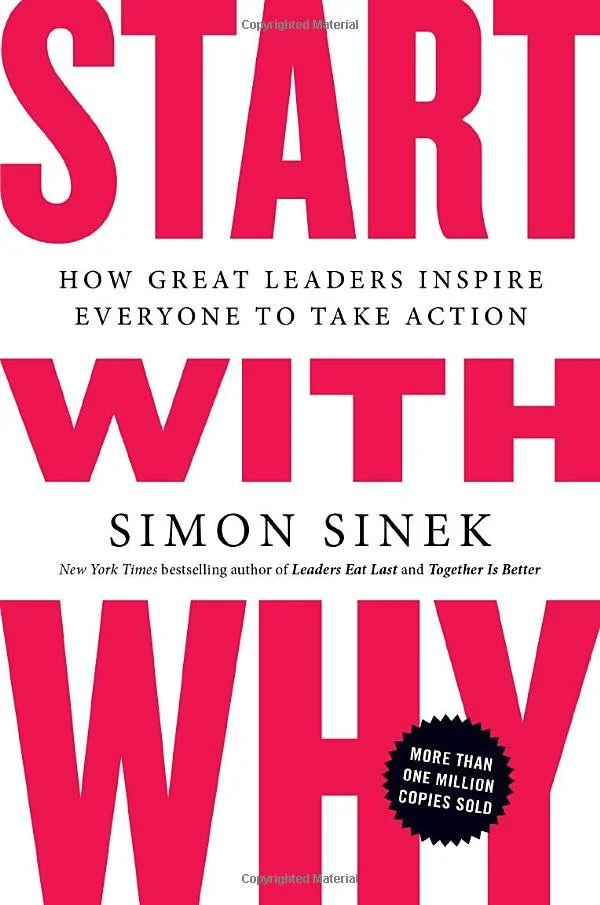
Simon Sinek looks at the idea of ‘born leaders’. Leaders aren’t born, he argues, rather they are made. The book reveals how any of us can become a leader by examining what the world’s ‘born’ leaders have that many people don’t. What are the great secrets that set some apart in their leadership. The book then explores how to apply these leadership qualities in your own business.
Rated 4.6 Stars. Buy on Amazon.
14. The Lean Startup - Eric Ries
Eric Ries describes the avoidable reasons so many startups fail. It is all about adaptability and agility, startups need to be constantly adjusting their approach to stay ahead of competition. This innovative approach attempts to pierce through all the uncertainty new business owners and offer advice on how to achieve success. It enables a company to shift directions with agility, altering plans inch by inch, minute by minute.
15. Hooked - Nir Eyal
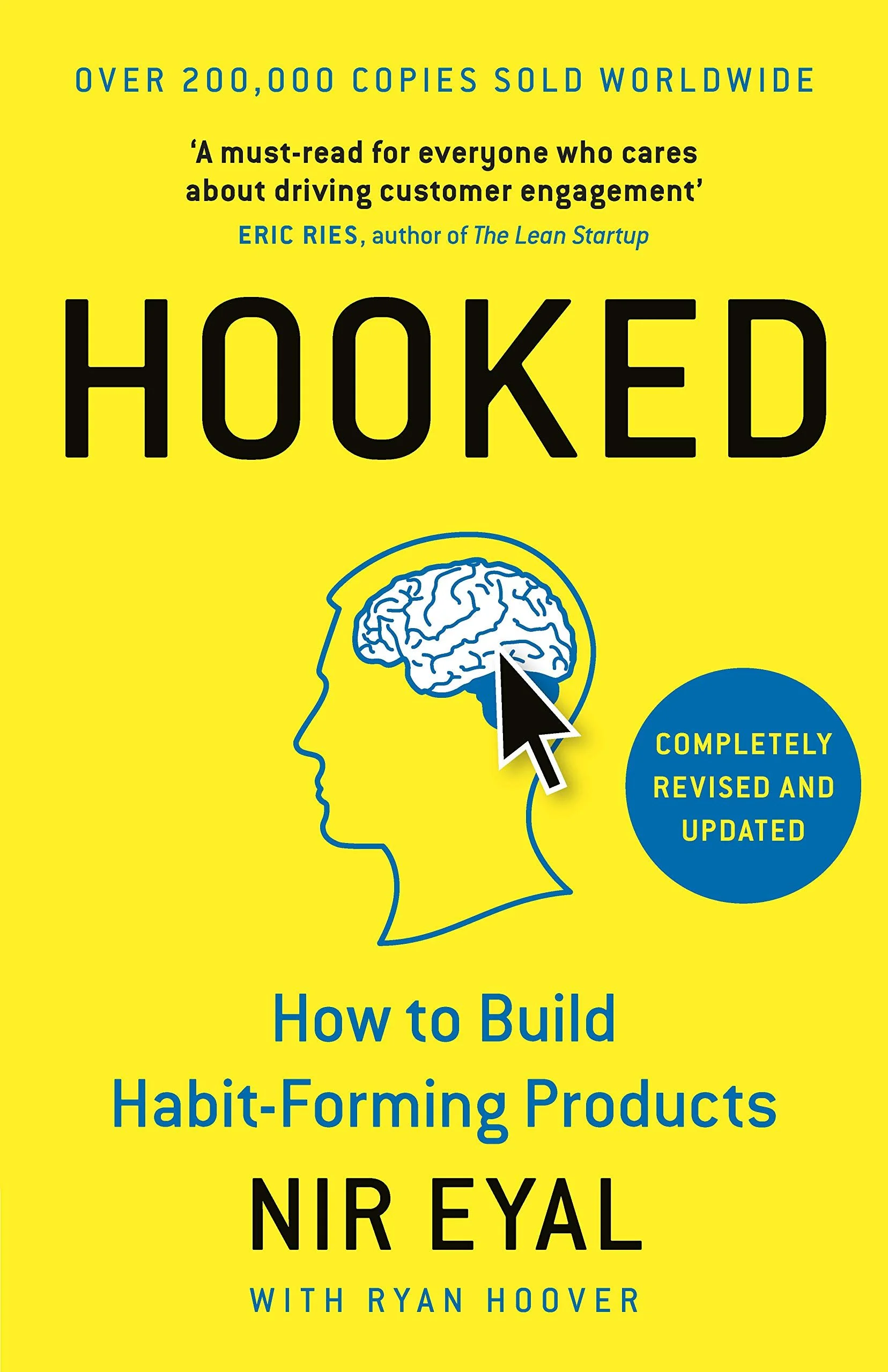
Nir Eyal explores some integral questions startups have to ask. Why do certain products capture consumer attention? What is it about those engaging products that captivates people? Once you know the answer to these questions you can begin to use the answers in your own business. This book offers practical insights and actionable steps to create attention grabbing products that people love.
Rated 4.5 Stars. Buy on Amazon.
16. The $100 Startup - Chris Guillebeau
In this book, Chris Guillebeau looks at 50 incredible case studies where the people have built businesses earning $50,000 or more a year from a very modest investment, often less than $100. Focusing on how each of these people restructured their lives to live self-fulfilled lives monetizing their passion, Chris offers insights into how anybody can do the same thing.
17. The Power of Broke - Daymond John
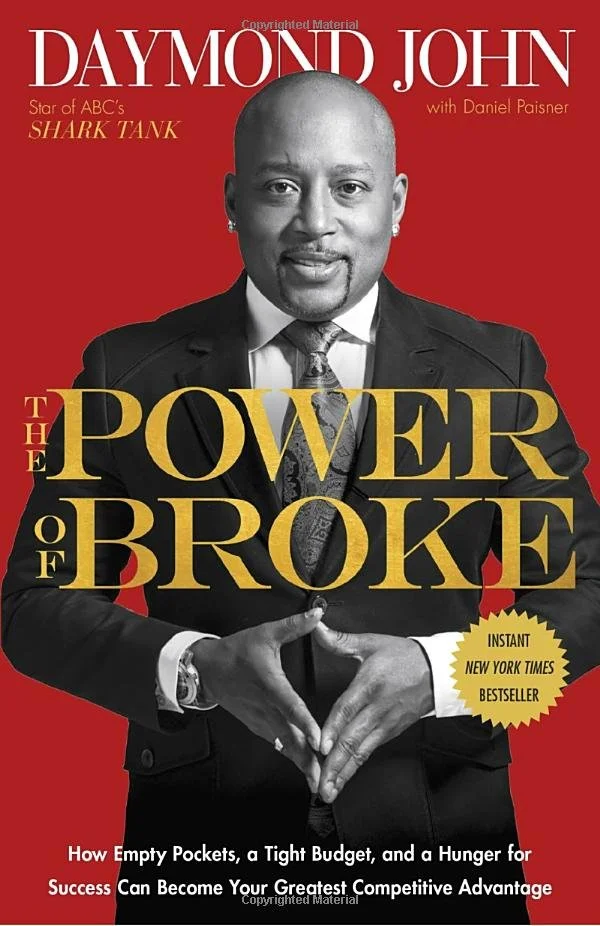
Daymond John, Shark Tank entrepreneur talks about how being broke can be your biggest advantage when it comes to building a successful business. Why? Because when you have nothing to fall back on, you are desperate, then you have to be bold and creative. It is creative, original, out-of-the-box thinking that makes the most out of the limited resources you have. In this book Daymond explores how you can scrape, hustle, and dream your way to the top with nothing but your determination and unforgiving drive.
Rated 4.6 Stars. Buy on Amazon.
18. Running Lean - Ash Maurya
The Internet has opened up and given everybody access to unparalleled resources, not just information wise, but the resources to reach incredibly specific target markets. It is a time of incredible opportunity and innovation. However, most startups fail, and Ash argues it’s because people waste their time, money and energy doing the wrong thing. Running Lean outlines a process for vetting ideas, helping you settle on the one that’s going to help you win and not waste time money or efficiency.
19. The Checklist Manifesto - Atul Gawande
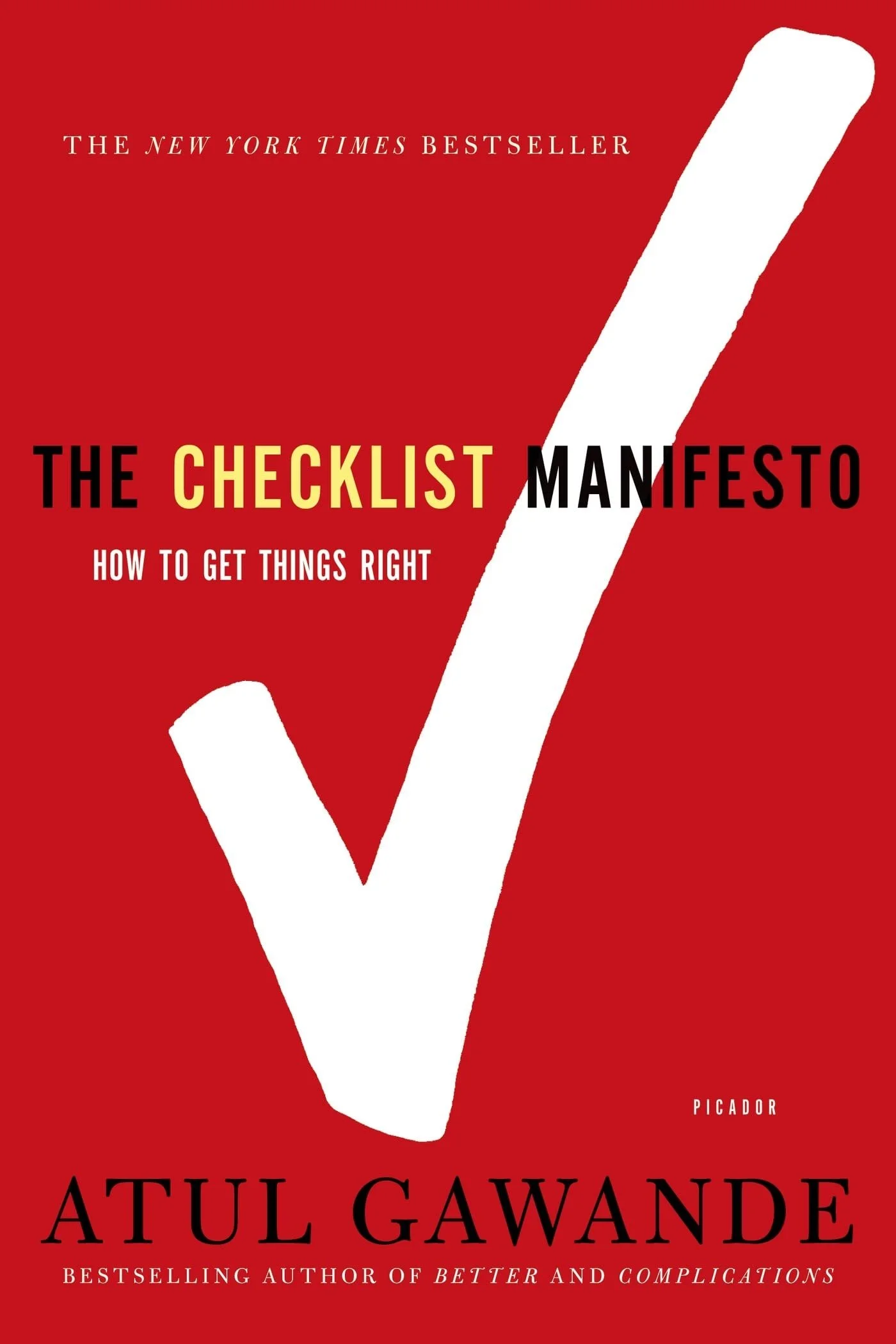
Atul Gawande makes an argument that everyone should use the simplest method to organise and deliver our thoughts. A checklist. He outlines the striking improvements in efficiency and productivity that a powerful checklist will develop, helping you succeed.
Rated 4.5 Stars. Buy on Amazon.
20. The Four Steps to Epiphany - Steve Blank
This influential book offers insight into four provenly effective steps to the customer development process and how you can apply these steps to make your startup successful. It outlines the four steps to uncover and identify flaws in business plans and product development and fix them before they become costly problems.
21. The Subtle Art of Not Giving F*ck – Mark Manson
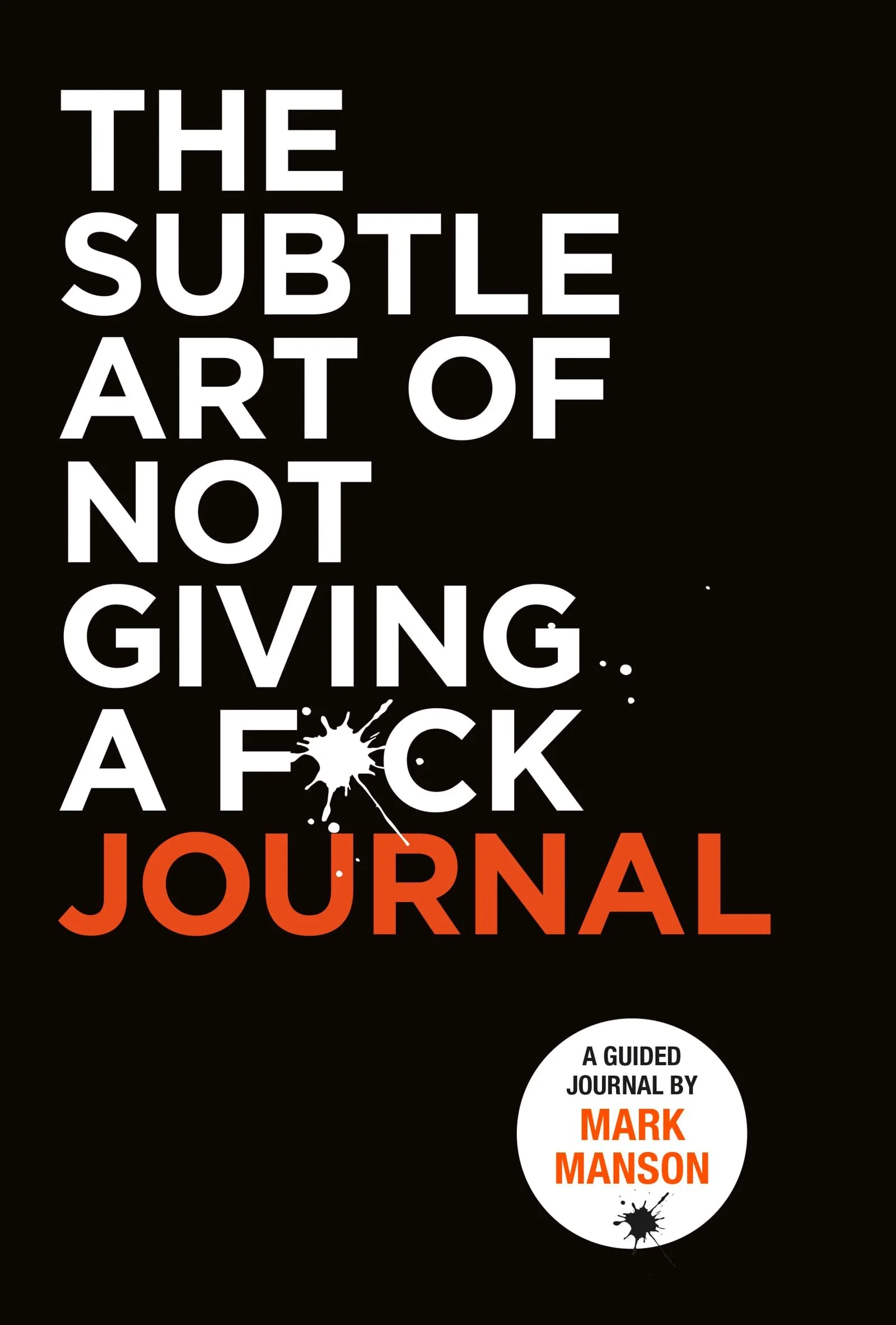
Taking a much lighter tone than other books on this list, Manson insists that making the most of our lives isn’t about turning bad situations into good ones, it’s about stomaching the lemons life gives us. Start confronting our limitations and you’ll find that you can do a lot more than you ever realised to live the life you want to. *The Subtle Art of Not Giving a F**k *is a refreshing slap for a generation to help them lead contented, grounded lives.
Rated 4.7 Stars. Buy on Amazon.
22. Traction - Gabriel Weinberg and Justin Mares
Drawing from their own learned experience, Gabriel Weinberg and Justin Mares know that building a successful company is hard. So many startups sputter and die in their first stages.
This book teaches how to quickly and effectively build a loyal growing customer base.
23. The Magic of Thinking Big – David Schwartz
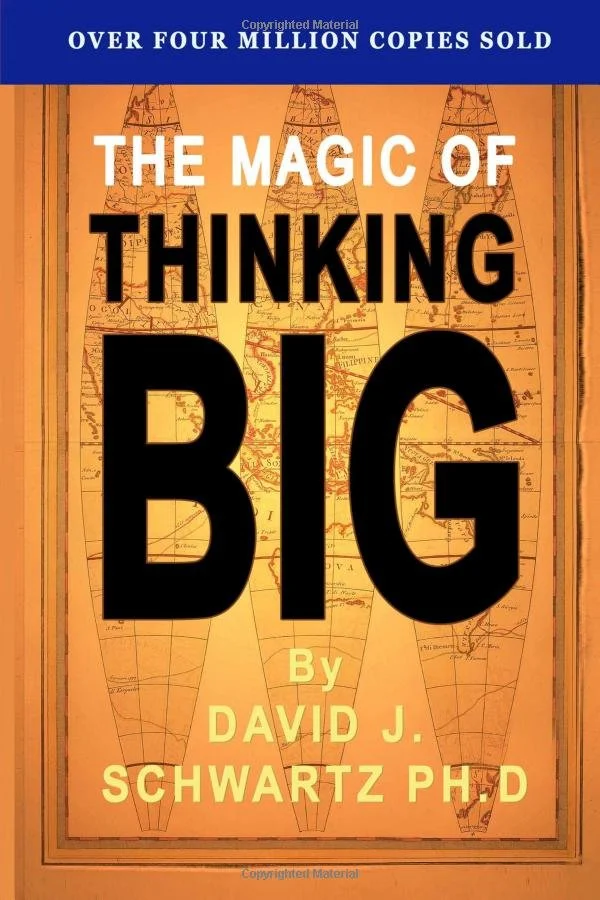
David Schwartz, P.H.D. has his advice rooted deeply in psychology. He argues, drawing on illuminating anecdotes, that you don’t need some incredible innate talent or intellect to be successful, rather you need to understand habitual thinking and behaviours.
Rated 4.8 Stars. Buy on Amazon.
24. The Compound Effect – Darren Hardy
It’s the little decisions that make the final decision. The Compound Effect explores how you identify the wrong decisions and how you can go about making the right ones in your everyday life to lead you to the life you desire.
25. Ego is the Enemy – Ryan Holiday
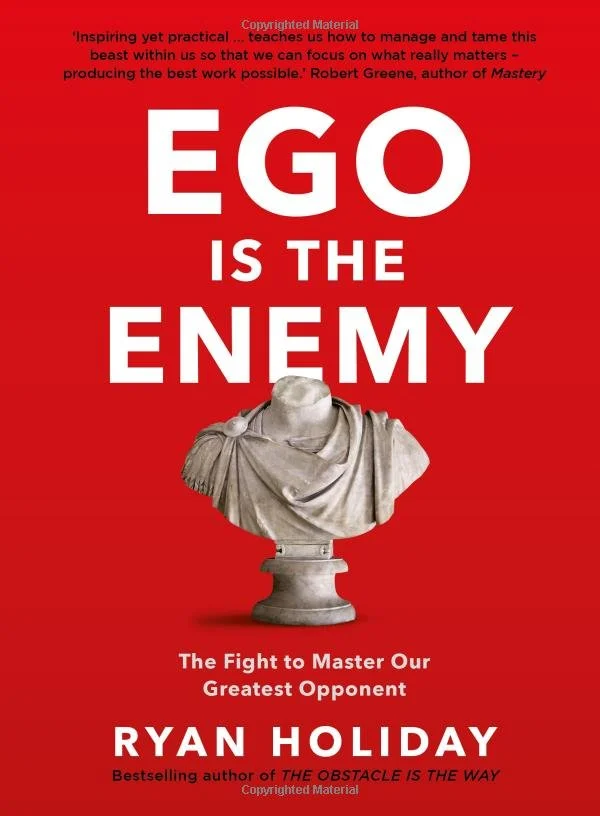
Drawing on examples from literature to philosophy *Ego is the Enemy *offers analysis of how some of the highest achieving historical figures achieved their success and how we can adopt their strategies and tactics as our own.
Rated 4.6 Stars. Buy on Amazon.
26. The Law of Success – Napoleon Hill
This book breaks down how to plot your course from the beginning and effectively follow through with your plans to thrive and succeed. It focuses on examples showing what does and doesn’t work and how you can adopt those step in your own life.
27. The Seven Day Startup - Dan Norris
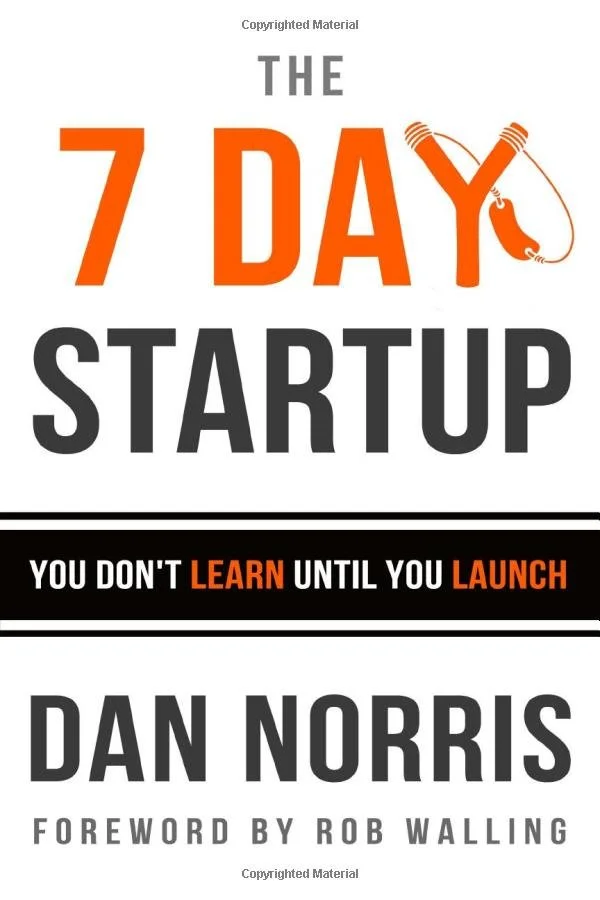
This is a detailed guide on how you can launch your next product. In it you learn everything from evaluating your business idea to best ways to market a business, and building a customer base quickly and cost-efficiently. Drawing from real-life experiences, this book aims to outline how to quickly and easily launch a successful business, avoiding those common pitfalls that often scuttle new startups.
Rated 4.4 Stars. Buy on Amazon.
28. The Art of the Start - Guy Kawasaki
There has been a seismic change to how businesses begin, market, and grow over the last two decades. Social media has become a powerhouse behind marketing efforts, largely replacing the now archaic idea of PR. Cloud CRMs make detailed infrastructure for companies of all sizes easy and affordable. Guy Kawasaki in the book *The Art of the Start *outlines how you can use all these tools to become an innovative leading business with an edge over the competition.
29. Will it Fly? - Thomas K. McKnight
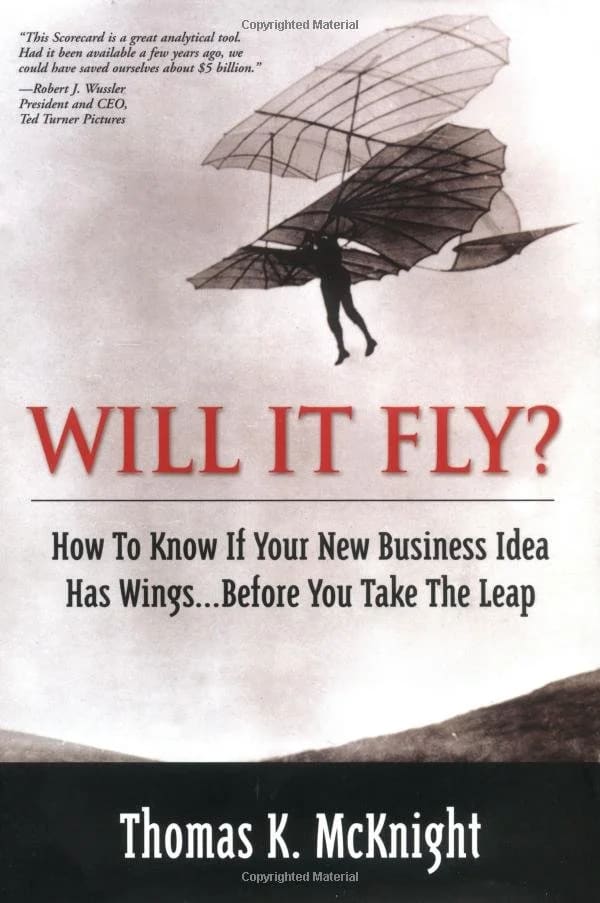
Full of practical advice to apply to your business today, Will it Fly? Uses real world case studies and McKnight’s personal experience to show how you can launch a successful business.
Rated 4.3 Stars. Buy on Amazon.
30. The Third Wave - Steve Case
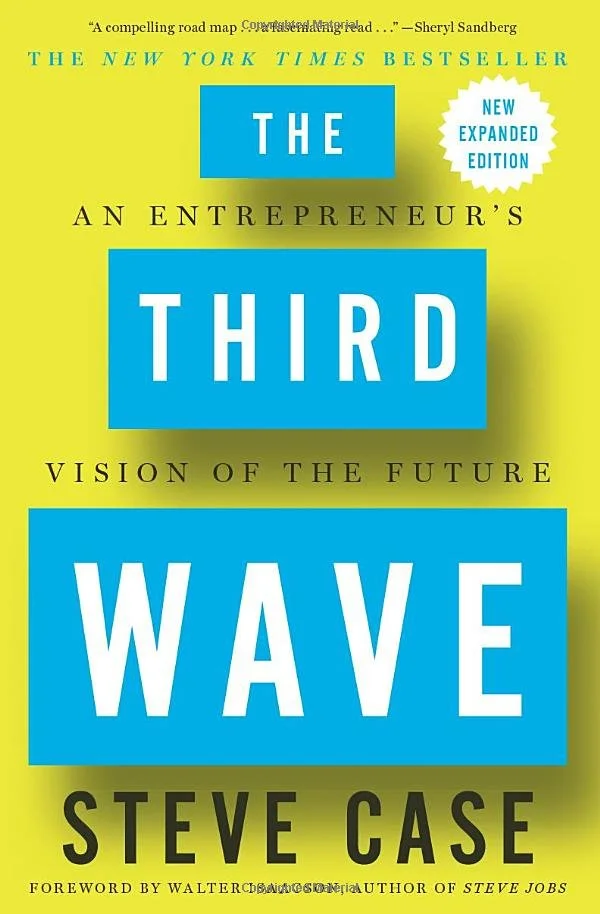
Steve Case, the internet pioneer behind the company AOL argues that there is a third stage to the development of the internet which will be harnessed by entrepreneurs to rapidly develop the most efficient productive use of our time.
In The Third Wave, he uses his insights garnered from nearly four decades of working as an innovator, investor, and businessman to argue the importance of entrepreneurship and to chart a path for future innovators.